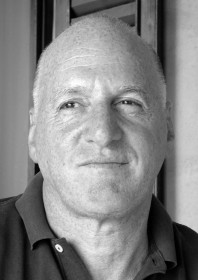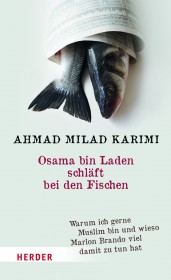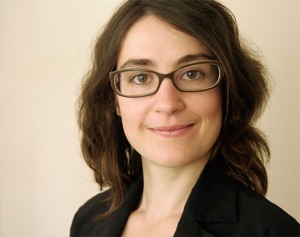
The author © David Ranan
For his book, “The shadows of the past are still long: Young Jews on their lives in Germany,” culture researcher, David Ranan, conducted interviews with Jews between 20-40 whose grandparents survived the Holocaust and then settled in Germany after the war. The London-based author will present his book at the Academy of the Jewish Museum Berlin on 7 July 2015, as part of the “New German Stories” series. In advance, we asked him three questions.
Julia Jürgens: Mr. Ranan, one question you asked your interviewees deals with the “packed luggage” the first and second generation seem to have at the ready, an expression of their inner conflict between being able to safely stay or having to again flee. Is there still this conflict within the third generation or how else would you describe its sense of belonging to Germany? → continue reading
“New German Stories,” an event series launched in January 2014 as part of the Academy program, continues this evening, 10 March 2015, when Ahmad Milad Karimi, Professor of Islamic Philosophy and Mysticism at the University of Münster, presents his new book Osama bin Laden is sleeping with fishes (Osama bin Laden schläft bei den Fischen) at the Academy of the Jewish Museum Berlin. We put three questions to our guest, prior to the event.

Ahmad Milad Karimi: Osama bin Laden is sleeping with fishes (Bookcover) © Herder Publishers
Julia Jürgens: Dear Mr. Karimi, in your autobiography you bring together Western popular culture and the history of Islamic intellectualism, the translation of the Koran and your PhD thesis on Hegel, Persian mysticism and a penchant for mafia films. If I may make a question of your book’s subtitle: What does Marlon Brando have to do with the pleasure you take in being Muslim?
Ahmad Milad Karimi: That is a secret of the book, a secret concealed first and foremost by the fact that there is always more to people than the pigeonhole we like to keep them in.
Six years ago you published your new translation of the Koran. What motivated you to take up such a challenge and add a new translation to those already in existence?
The Koran is more than simply a book—it is → continue reading
Tomorrow evening, 9 September 2014, the cultural anthropologist Alina Gromova will present her book “Generation ‘kosher light’” (transcript Verlag 2013) in the Academy of the Jewish Museum Berlin. As in the case of the many other authors whose “New German Stories” we recently discussed, we put three questions to Ms. Gromova prior to her reading:

Alina Gromova © Judith Metze
Alina, for your study of an international group of young Jews in Berlin you took the city itself as your springboard. Exploring the locations where your subjects live, hang out, mingle and party enabled you to chart their diverse notions of identity, tradition and religion. Why did you opt for such an explicitly spatial focus?
Identity and tradition are terms often difficult to grasp, because they are interwoven with symbols, values, wishful thinking or memories. A space, however, has not only a symbolic but also a physical dimension and is therefore more palpable. Personally, I don’t see a space as a 3-D void waiting to be filled by people or things. On the contrary, people and things are what create a space in the first place. And urban space is especially fascinating, I find, because a broad cultural and religious spectrum often occupies one and the same spot, however tiny; and different elements simultaneously give rise there to their own spaces, so the result is a palimpsest of spaces that then interconnect.
→ continue reading


